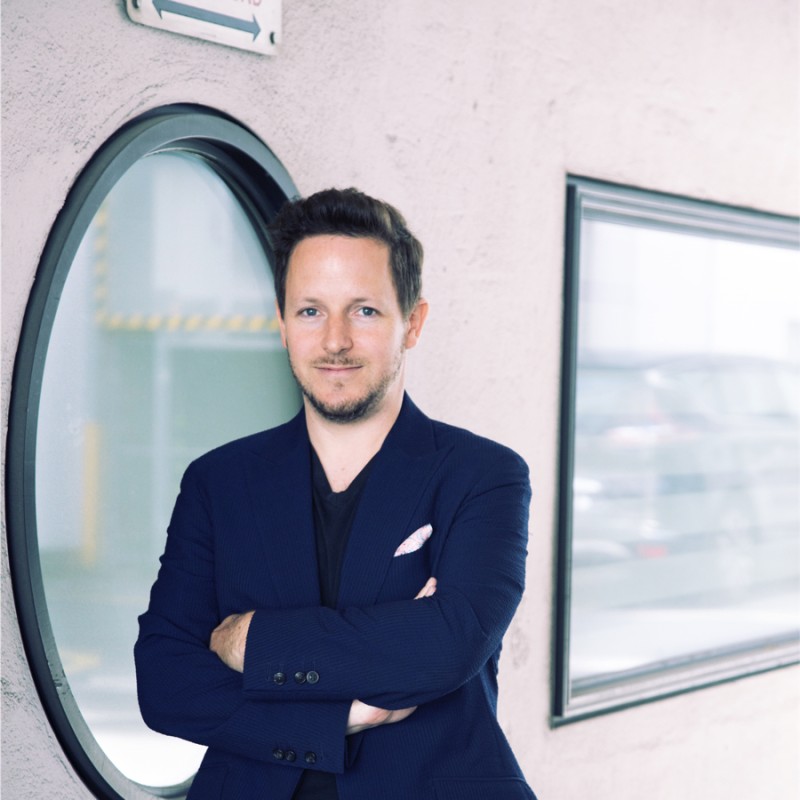1. Please tell us a bit about yourself, both at work and leisure.
Hi, I am Stefan, Co-Founder & CEO at Aisot Technologies. We are a leading provider of real-time insights for trading and asset management. I always had a passion for both entrepreneurial work and predictive tools. The Oracle of Delphi was by far the coolest thing in Latin class. And my first business I „founded” as a kid, when selling cherries from our garden on our village’s streets. In my free time, I like to be in nature or sing. I have played in rock bands since I was a teenager.
2. Which product or service do you offer, and who are your competitors?
Markets are volatile. The influence of real-time events on assets’ prices is increasing. At the same time, real-time data is projected to grow fivefold over the next ten years, accounting for one-third of the global data sphere. Most of this data and corresponding insights are currently still untapped. aisot offers next generation data analytics, forecasts and portfolio optimization products, allowing trading and investment professionals to untap the potential of real-time insights from both market and unstructured data. aisot supports traders, investors, brokers, market makers and asset / portfolio managers to make higher profits and minimize risks due to unparalleled and targeted insights derived from latest Machine Learning technology.
Most competitors either focus on sentiments (see Ravenpack, Yukka Labs) or market data (Bloomberg, Refinitiv, etc.). At aisot, we go one step further in the value chain and bridge the last mile in data-driven decision making.
3. How did you get the business idea and take it from launch to the first customers?
My two Co-Founders, Nino and Tian, did some groundbreaking research about Bitcoin volatility forecasting when we all worked at ETH Zurich. They then presented it at the IEEE International Conference on Data Mining (ICDM). Suddenly, they were approached by digital asset funds that were interested in learning more about their novel approach. We then evaluated the market potential of our forecasting solution and came to the conclusion that no comparable solution currently exists and potential applications go way beyond the financial services industry into logistics, retail and other sectors. Plenty of reasons to start building a company. We worked on an MVP, ran some tests with clients and had a steep learning curve. Now, 1.5 years later, we have a range of real-time trading and asset management products, a growing number of paying clients and various new opportunities in our pipeline. The goal is to reach more than 1M USD in annual recurring revenues in the next 12 months.
4. How have you financed your startup? Any lessons would you like to share from the fund-raising journey?
We first bootstrapped the company. We believe that you first need some revenue to prove your product/market fit and only then start looking for financing. As we achieved this, we went one step further and launched a pre-seed round which we closed in March at 285k USD. Our next goal is a seed round, planned for autumn 2021. We are looking for around 2M USD and already have a substantial part committed. It is crucial for us to find investors that really fit into our roadmap and have a substantial track record of successful fintech early-stage investments and the capacity to make the right introductions for future rounds. I guess the most important thing when raising funds is to know what else one needs from an investor besides the funds.
5. Which are the key trends and opportunities in (European) financial services?
Key trends include ongoing digital transformation and the increasing role of AI/ML. As most banks are still in the process of redefining themselves as agile tech companies, the digital transformation is lagging behind. Compared to other sectors, the financial services industry has not yet developed a culture of open innovation. Rather than embracing the future and new technologies, existing privileges are currently being safeguarded. However, down the road, players will succeed that fully embrace open innovation and collaborations at eye level. Already today, there are plenty of new opportunities to disrupt the space. Recent developments around the retail trading market give you an idea of such disruptions. When it comes to AI/ML, we believe that the role of real-time data analytics and predictive technologies will grow even more important in the future. As real-time data grows at a fast pace, traders and investors require more sophisticated tools and abilities to analyze and forecast markets. And that’s where aisot is coming into play.
6. What’s on your bookshelf/ reading list?
Hesse, E.T.A. Hoffmann, Kafka. And I started to read Cory Doctorow’s Walkaway.
7. Your favorite place for a coffee and/ or a drink?
In Zurich: Kleine Freiheit (engl. „little freedom”) for a coffee, and Am Damm for a drink.

